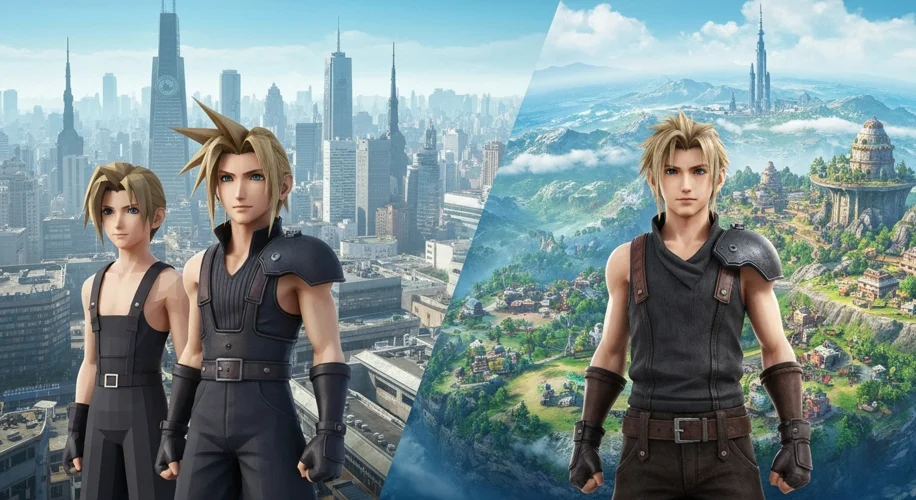For decades, the iconic “Final Fantasy” series has been a cornerstone of the Japanese role-playing game (JRPG) genre, captivating millions with its intricate stories, memorable characters, and sprawling worlds. However, for much of its illustrious history, a significant portion of this beloved franchise was tethered to a single platform, creating a sense of exclusivity that, while fostering strong community bonds, also presented a barrier to entry for many.
Today, however, the landscape is dramatically shifting. The decision to release the “Final Fantasy VII Remake” trilogy – a monumental undertaking that reimagines one of the most beloved entries in the series – across multiple platforms marks a pivotal moment. This move away from strict PlayStation exclusivity signifies more than just a business decision; it reflects a broader evolution in the gaming industry and a commitment to bringing these epic narratives to a wider audience.
For those new to the world of Final Fantasy, or perhaps those who only experienced it through a friend’s console, the original “Final Fantasy VII” released in 1997 on the PlayStation was a revelation. It was a game that pushed the boundaries of what was possible with its pre-rendered backgrounds, cinematic storytelling, and a narrative that delved into themes of environmentalism, identity, and loss. The story of Cloud Strife, a mercenary haunted by his past, and his fight against the Shinra Electric Power Company and the enigmatic Sephiroth, resonated deeply with a generation of gamers. The game’s exclusivity to the PlayStation cemented its association with the console, creating a powerful brand synergy.

This exclusivity continued for many subsequent “Final Fantasy” titles, with certain entries becoming synonymous with their debut platforms. While this strategy helped build brand loyalty and drive console sales, it also meant that players invested in different ecosystems were often left out. The desire to experience these narratives, to explore the intricate magic systems, and to engage with the deep character development meant making a choice, often a costly one, about which console to own.
The announcement and subsequent releases of “Final Fantasy VII Remake” (2020), “Final Fantasy VII Rebirth” (2024), and the upcoming “Final Fantasy VII Remake Part 3” have been met with immense anticipation. This trilogy is not merely a graphical update; it is a re-imagining from the ground up, expanding upon the original’s lore, character arcs, and gameplay mechanics. The initial release of “Remake” was also a PlayStation exclusive, continuing the series’ tradition. However, the subsequent expansion to PC and, crucially, the announcement of “Rebirth” and “Part 3” coming to broader platforms, including potentially Xbox and other PC storefronts beyond the initial Epic Games Store exclusivity, signals a clear departure.
This shift is not happening in a vacuum. The gaming industry has seen a consistent trend towards cross-platform releases. Publishers are recognizing that a wider reach often translates to greater commercial success and a more engaged player base. For a franchise as globally recognized as “Final Fantasy,” limiting access to a single console ecosystem in today’s interconnected world would be a missed opportunity. It allows players who may have missed the initial PlayStation releases to jump into the captivating world of “Final Fantasy VII” without needing to acquire older hardware.
The implications of this decision are far-reaching. For long-time fans who have championed the series for years, it means sharing their beloved world with a new generation of players on their preferred platforms. For newcomers, it offers an unprecedented opportunity to experience one of the most critically acclaimed JRPGs ever made, in its most visually stunning and expanded form. This democratization of access not only benefits the players but also strengthens the “Final Fantasy” brand, ensuring its continued relevance and appeal in an ever-evolving entertainment landscape.
The journey of “Final Fantasy VII” from a PlayStation exclusive to a multi-platform phenomenon is a testament to the industry’s adaptability and the enduring power of great storytelling. As the trilogy continues its release, this move towards greater accessibility is likely to be remembered as a significant chapter in the history of both “Final Fantasy” and the JRPG genre as a whole.

